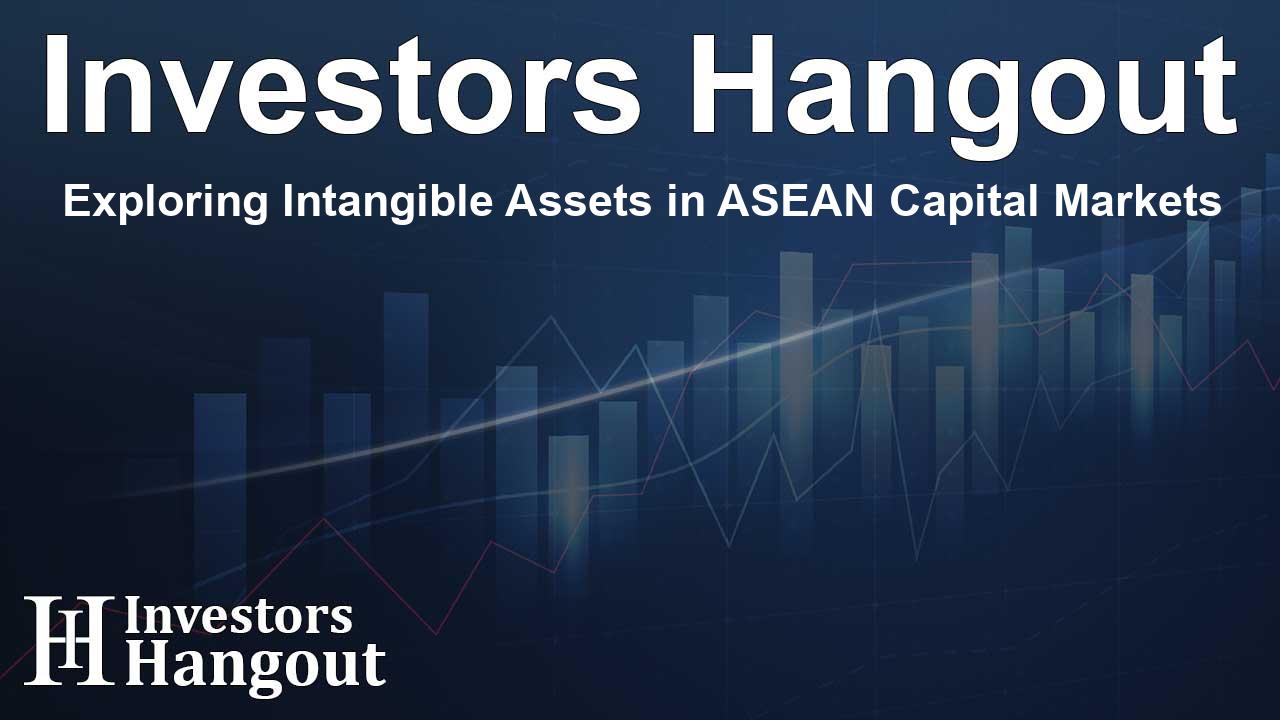Exploring Intangible Assets in ASEAN Capital Markets

Understanding Intangible Assets in ASEAN Capital Markets
Global consulting firm J.S. Held has collaborated with notable organizations to produce an insightful report examining the landscape of intangible assets in ASEAN capital markets. This partnership involves the International Valuation Standards Council (IVSC), the Intellectual Property Office of Singapore (IPOS), and the National University of Singapore, focused on uncovering trends and policy implications that surround intangible assets.
The Role of J.S. Held Experts
Experts from J.S. Held’s Singapore office, including industry leaders, played a crucial role in grounding the policy dialogue within robust market evidence. Iain Potter, Executive Vice President at J.S. Held, emphasized the importance of applying their extensive experience in intangible asset valuation to contribute valuable insights for the study.
Significant Findings on Recognized Intangible Assets
The research highlights an encouraging trend: Recognized Intangible Assets (RIA) as a portion of enterprise value has been growing. In the ASEAN-5 region—comprising Indonesia, Malaysia, Philippines, Singapore, and Thailand—RIA rose from a mere 1% in 2005 to over 2.5% in 2022, pointing towards an increased recognition of these assets. However, the report indicates that RIA remains concentrated in a small number of firms and is often tied to specific rights and licenses.
Gap Between Market Value and Book Value
A troubling discrepancy was uncovered between the market valuation of companies and their reported book values. This gap implies that many intangible assets are not fully recognized within financial statements. This frequently results in firms potentially undervaluing themselves, especially in industries reliant on intangible capital.
Call for Enhanced Financial Reporting Standards
The study advocates for a re-evaluation of financial standards, particularly IAS 38, to ensure they align with modern business practices and adequately account for industries that place significant emphasis on intangibles. Implementing these changes could lead to better recognition of intangible assets, prompting regulators and investors to reassess their approaches and strategies.
Policy Recommendations and Future Directions
To bridge the identified gaps, the report recommends enhancing financial reporting frameworks, promoting comprehensive recognition of intangible assets, and aligning these reports with the realities of valuation in today's market. As the landscape continues to evolve, updated standards and practices will be essential for supporting innovation and fostering transparency.
Insights from Industry Leaders
James E. Malackowski, Chief Intellectual Property Officer at J.S. Held and a respected figure in the field, highlighted the influence of J.S. Held’s collaborative efforts. He noted that the IPOS has set an example in recognizing intangible asset value, with expectations that other regions may adopt similar practices based on their work.
About J.S. Held
J.S. Held stands out as a global consulting firm, known for its blend of technical, scientific, financial, and strategic expertise. The firm operates as a trusted advisor for clients navigating high-stakes matters, working diligently to maximize value while mitigating risk. With a comprehensive suite of services, J.S. Held aids clients in managing complex challenges effectively.
Boasting a talented workforce of over 1,500 professionals, the firm serves a diverse clientele, including notable global law firms and Fortune-listed companies. Their reputation for integrity, clear analysis, and experience reflects their commitment to providing exceptional service in the realm of intangible asset consulting.
Frequently Asked Questions
What was the main focus of the J.S. Held report?
The report primarily focuses on the recognition and reporting of intangible assets in ASEAN capital markets, analyzing trends and offering policy implications for businesses and regulators.
Who collaborated with J.S. Held on the study?
J.S. Held collaborated with the International Valuation Standards Council, the Intellectual Property Office of Singapore, and the National University of Singapore for this comprehensive study.
What trends were identified regarding intangible assets?
It was found that Recognized Intangible Assets (RIA) are increasing in value, from 1% of enterprise value in 2005 to over 2.5% in 2022, although they remain concentrated in a limited number of companies.
What recommendations were made in the report?
The report suggests a revision of financial reporting standards, particularly IAS 38, to better capture the value of intangible assets in modern business models and encourage comprehensive reporting.
How can businesses benefit from the insights provided in the report?
Businesses can benchmark their intangible asset strategies and recognize how their reported values align with sector peers, improving overall valuation and market positioning.
About The Author
Contact Kelly Martin privately here. Or send an email with ATTN: Kelly Martin as the subject to contact@investorshangout.com.
About Investors Hangout
Investors Hangout is a leading online stock forum for financial discussion and learning, offering a wide range of free tools and resources. It draws in traders of all levels, who exchange market knowledge, investigate trading tactics, and keep an eye on industry developments in real time. Featuring financial articles, stock message boards, quotes, charts, company profiles, and live news updates. Through cooperative learning and a wealth of informational resources, it helps users from novices creating their first portfolios to experts honing their techniques. Join Investors Hangout today: https://investorshangout.com/
The content of this article is based on factual, publicly available information and does not represent legal, financial, or investment advice. Investors Hangout does not offer financial advice, and the author is not a licensed financial advisor. Consult a qualified advisor before making any financial or investment decisions based on this article. This article should not be considered advice to purchase, sell, or hold any securities or other investments. If any of the material provided here is inaccurate, please contact us for corrections.
